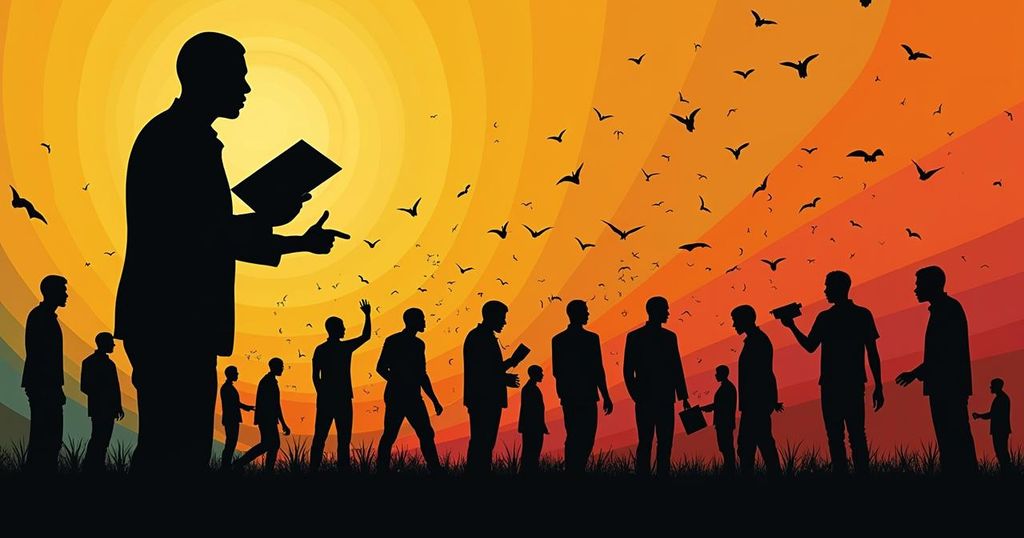Mozambique is poised for a high-stakes presidential election on October 6, 2024, following President Filipe Nyusi’s two terms. Approximately 17 million citizens are registered to vote for the next president and parliamentary members. The ruling Frelimo party is expected to retain power, yet candidates such as independent Venacio Mondlane are advocating for significant change amid a backdrop of violent insurgency and critical social issues.
On October 6, 2024, Mozambicans are set to participate in a critical presidential election to determine the successor to President Filipe Nyusi after his two consecutive terms. An estimated 17 million registered voters in this Southern African country will cast their ballots not only for the presidency but also for 250 parliamentary and provincial assembly seats. The ruling party, the Front for the Liberation of Mozambique (Frelimo), is anticipated to maintain its reign; however, four candidates have emerged, each proposing to bring significant change amid a backdrop of severe challenges, including an ongoing jihadist insurgency in the northern region and climate-related problems along the extensive Indian Ocean coastline. The insurgency has displaced over 1.3 million individuals, and millions continue to confront grave food shortages exacerbated by persistent drought conditions. Previous local elections in Mozambique were marred by allegations of vote-rigging and subsequent violence in the capital, Maputo, although current apprehensions appear less pronounced. The candidates include David Chapo from Frelimo, a former provincial governor with a focus on tourism development; Venacio Mondlane, an independent candidate advocating for reform and supported by a dissident group known as the Optimistic Party for the Development of Mozambique (Podemos); Lutero Simango from the Democratic Movement of Mozambique, known for appealing to younger voters; and Ossufo Momade of the Mozambique National Resistance (Renamo), who continues the legacy of the late party leader Afonso Dhlakama. The prominent issues at stake include the ongoing insurgency in Cabo Delgado, the halting of critical gas exploration operations by TotalEnergies due to the violence, and rampant problems such as high unemployment and food insecurity. The Frelimo party has been plagued by numerous corruption scandals, including the notorious “tuna bond” incident, which resulted in significant financial woes for the nation. Voting occurs on one day, following which counting will commence immediately. Partial results will be released as they become available, while official results, assessed by the National Election Commission, will be disclosed within 15 days and subsequently validated by the Constitutional Council, where any disputes may be filed for review.
Mozambique’s electoral landscape has been shaped by a long-standing history of political challenges and social upheaval. The country, which achieved independence from Portugal in 1975, has been governed by the Frelimo party, which has maintained power since its inception. The current election follows President Nyusi’s two terms, with voters looking towards a potential shift in governance amid pressing national concerns including an active insurgency and environmental vulnerabilities. Recent local elections had sparked significant unrest, raising questions about electoral integrity going into this national vote.
The forthcoming presidential election in Mozambique is critical, not only for its potential to shift political dynamics but also for addressing the pressing issues facing the nation, including security, development, and governance. With a significant portion of the electorate registered, the outcome will fundamentally impact Mozambique’s trajectory in the coming years, amidst hopes for stability and progress against a backdrop of historical challenges.
Original Source: apnews.com






